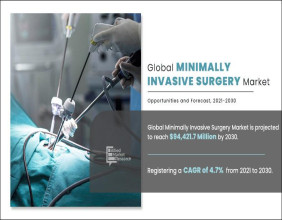Highlights
- New EU crypto regulations could drive companies toward UAE, benefiting Dubai and Abu Dhabi.
- The MiCA law imposes strict capital reserve rules, challenging smaller crypto firms in the EU.
- UAE’s crypto-friendly environment makes it a key destination for crypto businesses seeking stability.
As the European Union (EU) enforces its stringent new regulations for the crypto-asset sector, experts anticipate a significant shift in the market. The UAE is emerging as a key beneficiary of this transition, with virtual asset firms increasingly moving their operations to Dubai and Abu Dhabi. The new regulations, introduced under the Markets in Crypto-Assets (MiCA) law, are expected to impact the financial viability of crypto exchanges and stablecoin companies, prompting many to look for more flexible jurisdictions.
The EU’s New Crypto Law MiCA
Approved by the European Parliament in April last year and fully enforced as of December 30, the MiCA regulation introduces a comprehensive licensing and supervisory framework for crypto-asset issuers, platforms, and service providers across the EU. It mandates that small stablecoin issuers must keep 30% of their reserves in low-risk commercial banks within the EU, while larger players like Tether must reserve 60% or more in banks.
While MiCA aims to bring stability to the market, its stringent requirements could lead many crypto companies to relocate. Uldis Teraudkalns, Chief Revenue Officer at Paybis, noted that the high costs associated with complying with the new regulations would likely drive smaller firms out of the EU.
UAE’s Role in the Crypto Exodus
The UAE has positioned itself as a leading destination for crypto businesses due to its regulatory clarity and stable, crypto-friendly environment. As companies based in the EU look for more favorable jurisdictions, the UAE stands out for its welcoming stance toward virtual asset firms. Teraudkalns highlighted that the UAE’s clear and stable regulatory framework is a major draw for companies seeking a predictable environment to operate in.
Moreover, the UAE’s growing banking partnerships with crypto companies provide crucial access to payment methods and currencies, making it an attractive location for businesses looking to maintain operational efficiency and global reach.
Challenges for Smaller Firms Under MiCA
One of the most significant challenges posed by the MiCA law is the capital reserve rule, which mandates that stablecoin issuers must keep substantial reserves in EU banks. Agne Linge, head of growth at WeFi, noted that this requirement could impact the financial viability of smaller crypto firms, especially those with limited capital. The rule’s strain on liquidity could lead to market disruption, particularly for large players like Tether, which may struggle to meet these new requirements without affecting the broader crypto ecosystem.
Despite these challenges, Tether remains insulated from regional disruptions due to its market capitalization and widespread usage, particularly on peer-to-peer (P2P) platforms and decentralized exchanges (DEXs).
Migration and Consolidation Within the EU
While many companies will look to relocate outside the EU, some may shift to more progressive EU jurisdictions offering lower compliance costs. Teraudkalns also mentioned the potential for market consolidation as smaller companies are forced to leave or merge with larger firms, reducing overall competition.
while the EU’s MiCA regulation aims to bring stability to the crypto-asset market, its stringent requirements are likely to drive smaller firms out of the region. The UAE stands poised to capture a significant share of the crypto market as firms relocate to more crypto-friendly jurisdictions, signaling a major shift in the global virtual asset landscape.
_01_06_2025_14_36_55_845097.jpg)


